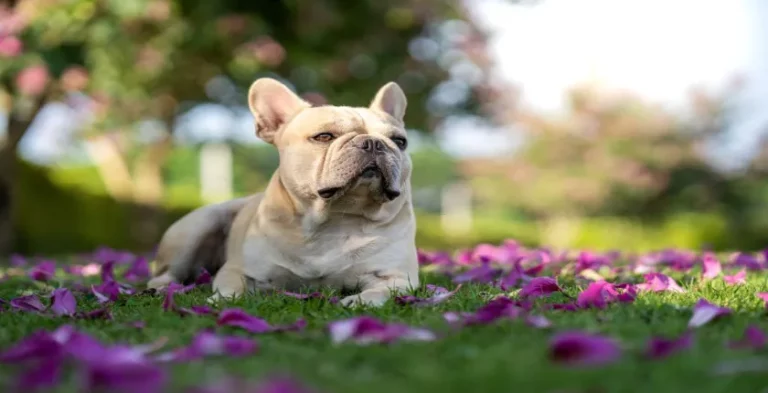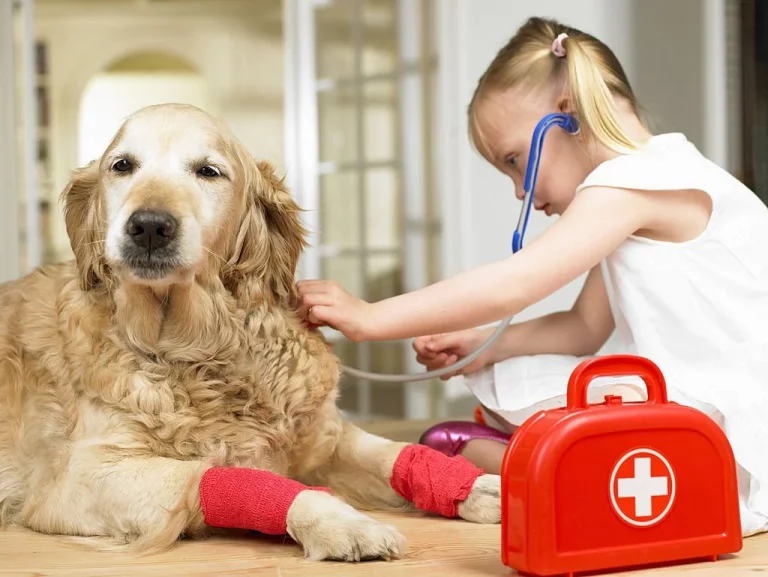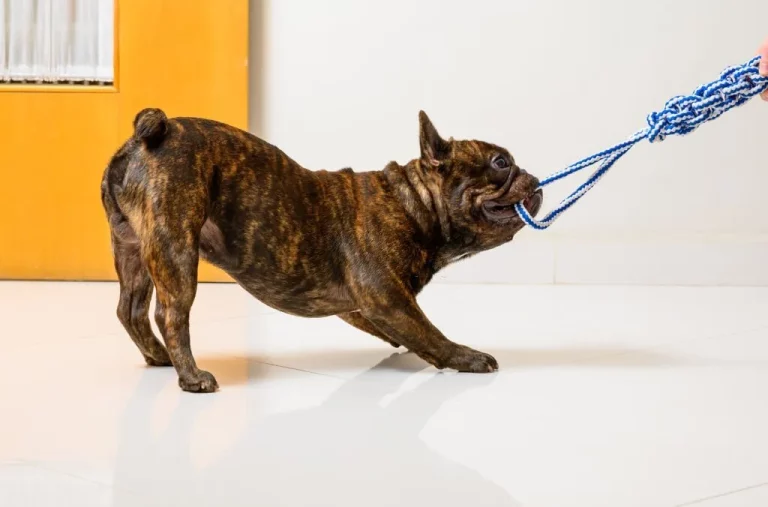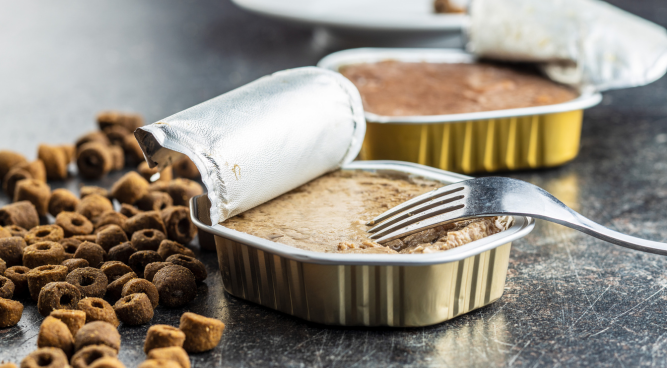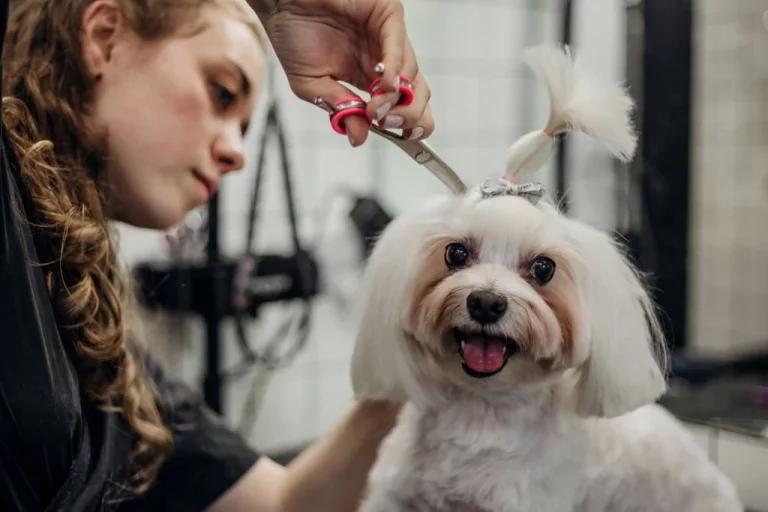Hairless Chihuahuas: Everything You Need to Know with Pictures
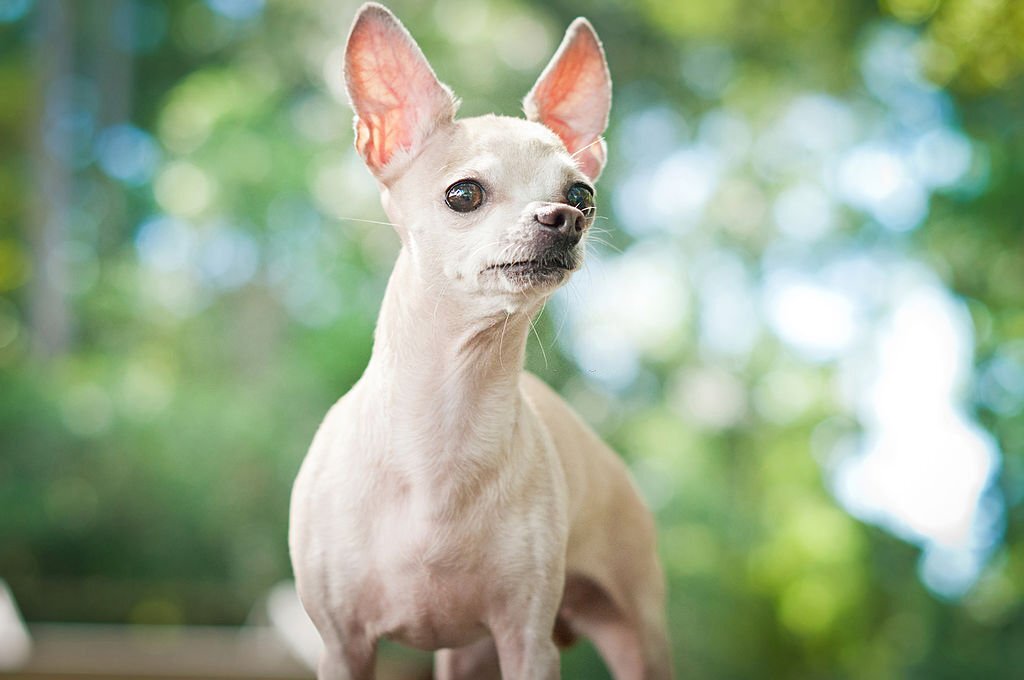
Table of Contents
What are Hairless Chihuahuas?
The hairless Chihuahua is a relatively new variant of one of the most popular toy breeds. Hairless Chihuahuas have the same origins and temperament as the traditional Chihuahua but with a distinct lack of fur.
Breed History and Origins
Hairless Chihuahuas originated in Central and South America and are thought to derive from the Techichi, an ancient dog breed kept by the Toltec civilization. The first documented hairless Chihuahua was born in 1978 to two furred parents. The hairless gene is recessive and both parents must carry it to produce hairless puppies.
Quick facts
| Lifespan | 14-16 years |
| Weight | 2-6 pounds |
| Height | 5-8 inches at the shoulder |
| Temperament | Affectionate, loyal, playful, but can also be yappy and territorial |
| Coat | Hairless, with soft, velvety skin |
| Colors | Black, brown, gray, white, or any combination of these colors |
| Grooming needs | Moderate |
| Exercise needs | Moderate |
| Training needs | Moderate |
| Health concerns | Dental problems, skin allergies, luxating patella, and eye problems |
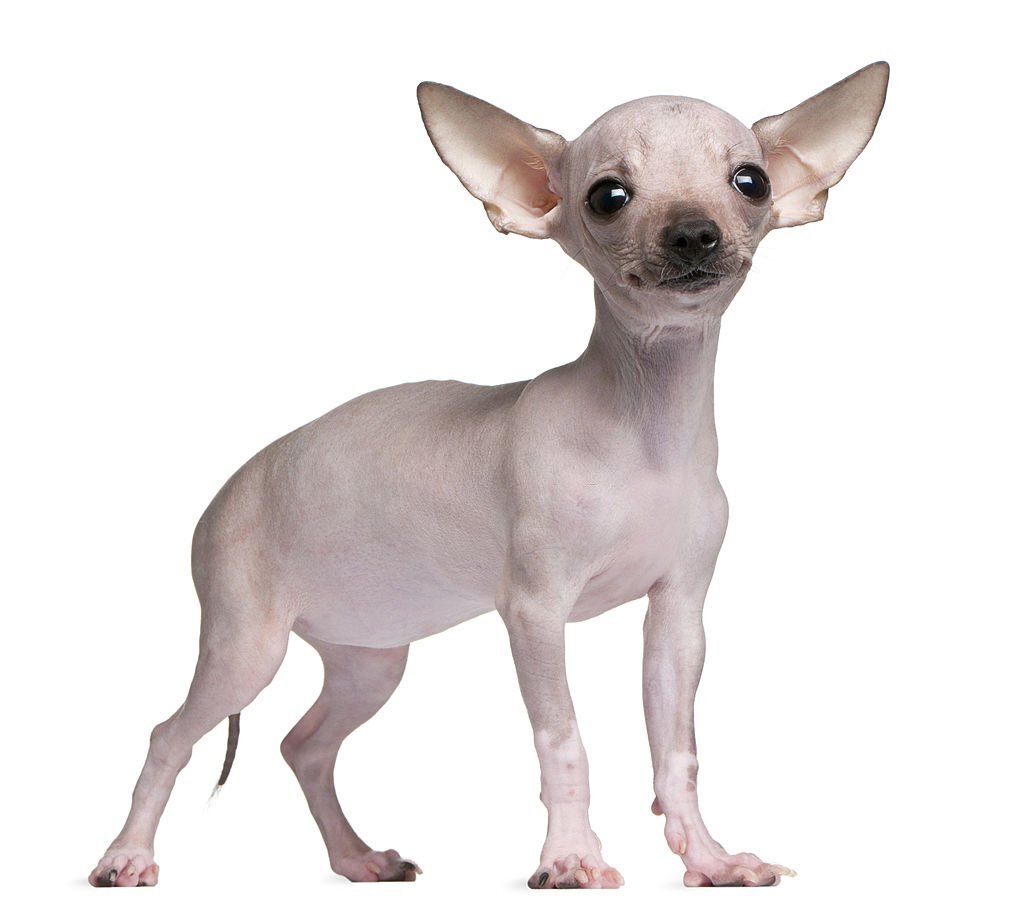
Appearance and Coat
As the name suggests, hairless Chihuahuas have no coat except for a Mohawk-like tuft of fur on the head, feet, and tail. Their skin feels like suede or velvet. Chihuahuas come in a variety of colors and patterns despite the lack of fur.
Temperament and Personality
Like other Chihuahuas, Chihuahuas tend to be lively, confident, and devoted to their owners. They form close bonds and don’t like to be apart from their people. Early socialization is important to prevent them from becoming overprotective.
Caring for a Hairless Chihuahua
Hairless Chihuahuas require some specialized care compared to coated dogs.
Grooming and Skin Care
Minimal grooming is needed, but moisturizing the skin frequently helps prevent dryness. Sunscreen should be applied before going outside. Baths can dry out the skin, so limit them to once per month.
Temperature Regulation
Lacking a coat, Chihuahuas are sensitive to temperature extremes. They need a sweater in colder climates and should not spend too much time in direct sunlight. Keep the home at a comfortable temperature for them.
Health Issues
Hairless dogs are prone to certain skin conditions, dental issues, hypoglycemia, and sunburn. Vet checkups every 6 months are recommended.
| Dental problems | Hairless Chihuahuas are prone to dental problems, such as plaque buildup, tartar buildup, and gum disease. This is due to their small mouths and overcrowded teeth. It is important to brush your Chihuahua’s teeth regularly to help prevent dental problems. |
| Skin allergies | Hairless Chihuahuas are also prone to skin allergies. This can be caused by a variety of factors, such as food allergies, environmental allergies, and flea allergies. If you suspect that your Chihuahua has a skin allergy, take them to the vet for diagnosis and treatment. |
| Luxating patella | A luxating patella is a condition in which the kneecap (patella) dislocates or slips out of its groove. This is a common problem in small dogs, such as hairless Chihuahuas. Symptoms of luxating patella include lameness, difficulty jumping, and pain. If your Chihuahua is showing any of these symptoms, take them to the vet for diagnosis and treatment. |
| Eye problems | Chihuahuas are also prone to a variety of eye problems, such as cataracts, glaucoma, and dry eye. These problems can lead to vision loss. It is important to have your Chihuahua’s eyes checked regularly by a veterinarian. |
Finding and Choosing a Hairless Chihuahua
Responsible breeding practices are very important with hairless dogs.
Breeders and Rescue Groups
Reputable breeders health test their dogs and breed to improve temperament. Rescue groups sometimes have Chihuahuas in need of adoption. Avoid pet stores or irresponsible online sellers.
Costs and Expenses
Expect to pay $800-$2000 for a Chihuahua from a responsible breeder depending on lineage. Adoption fees are typically lower. Vet bills, food, and supplies will cost ~$1000/year.
Ideal Home and Lifestyle
Hairless Chihuahuas thrive in calm, consistent environments. Their small size makes them good choices for apartments. Moderate daily walks and play sessions meet their exercise needs.
Training and Socializing Chihuahuas
Proper training and socialization prevent small dog syndrome.
Housetraining
Crate training combined with frequent outdoor trips helps Chihuahuas learn to eliminate outside. Patience and consistency are key during the process.
Obedience Training
Early obedience training using positive reinforcement techniques curbs problematic behaviors. Chihuahuas are intelligent and pick up on training quickly.
Socialization
Extensive socialization to people, animals, sights, and sounds, is crucial for Chihuahuas. It helps prevent fearfulness, barking, and aggression issues.
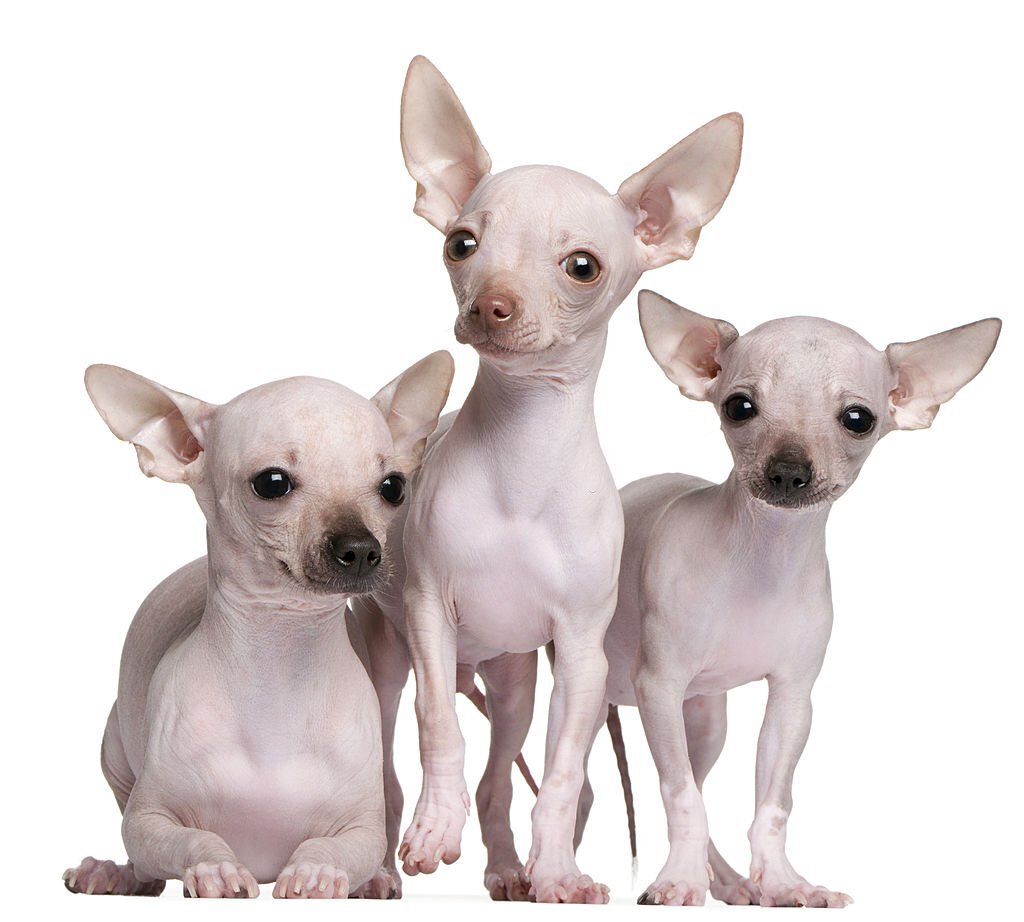
Diet summary
| Calories | Chihuahuas need about 50 calories per pound of body weight for puppies and 35 to 40 calories per pound of body weight for adults. |
| Protein | Chihuahuas need a diet that is high in protein, about 18% protein for adults. |
| Fat | Chihuahuas need a diet that is moderate in fat, about 5.5% fat for adults. |
| Carbohydrates | Chihuahuas can get their carbohydrates from a variety of sources, such as grains, vegetables, and fruits. However, it is important to avoid giving them too many carbohydrates, as this can lead to obesity. |
| Vitamins and minerals | Chihuahuas need a diet that is balanced in vitamins and minerals. This can be achieved by feeding them high-quality commercial dog food or by cooking their food at home. |
Pros and Cons of Chihuahuas
Here are some key advantages and challenges of owning a Chihuahua:
Potential Advantages
- Minimal shedding and dander make them hypoallergenic
- Easy grooming and maintenance
- Unique appearance stands out from other dogs
- Lovable lap dog temperament
Potential Challenges
- Susceptible to sunburn, cold, and skin injuries
- Require extra care such as moisturizing and clothing
- Can develop dental problems and other health issues
- May exhibit behavior issues without proper training
Related Post: Pug Puppies for Sale $200
Final Thought
Hairless Chihuahuas are distinctive dogs that make loving companions for the right owner. With appropriate care, socialization, training, and attention, they can thrive in homes seeking a tiny hypoallergenic pup. Their singular appearance comes with some specialized care requirements, but Chihuahuas reward dedicated owners with years of loyal companionship.
Frequently Asked Questions
What is the ideal diet for a Chihuahua?
High-quality dry kibble formulated for small breeds provides the right nutrients. Avoid poor-quality or high-fat diets.
How often should I bathe my hairless Chihuahua?
Limit baths to once a month at most. Use a hypoallergenic, gentle shampoo. Moisturize after.
Do hairless Chihuahuas need sweaters in warm weather?
No, but limit direct sun exposure. Use pet-safe sunscreen on exposed skin when outside.
Are Chihuahuas good family pets?
Yes, with socialization to children and other pets. Supervise young kids to avoid injuries.
What health problems are common in Chihuahuas?
Dental issues, hypoglycemia, sunburn, and skin conditions. Vet checkups every 6 months are recommended.

